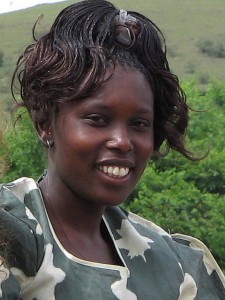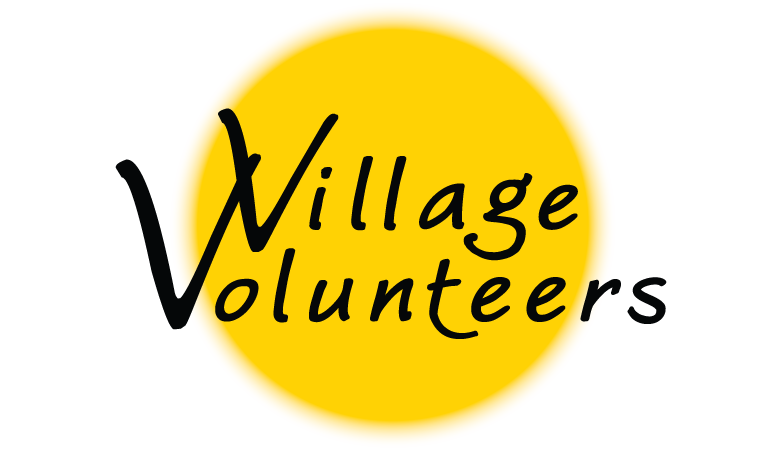 We have just walked two hours to town through the Ngong Hills, at the top an absolutely beautiful view of the valley that houses our Maasai village named Kimuka. Deirdre and I have now been there a week; which seems hard to believe as our homeland of civilization is a million miles away. We are staying with an incredible Maasai family, and have learned so much from them about their culture and the history of this part of Kenya during our short stay. They are very social people, day and night traveling around from one mud hut to the other, having tea and talking over the mundane details of their day.
We have just walked two hours to town through the Ngong Hills, at the top an absolutely beautiful view of the valley that houses our Maasai village named Kimuka. Deirdre and I have now been there a week; which seems hard to believe as our homeland of civilization is a million miles away. We are staying with an incredible Maasai family, and have learned so much from them about their culture and the history of this part of Kenya during our short stay. They are very social people, day and night traveling around from one mud hut to the other, having tea and talking over the mundane details of their day.
We are roughing it by any American standards, but have the best the village has to offer and have been treated like we have been sent directly from God. Everyone we meet is so grateful just to be in our company. We stay in a small house that has been built for volunteers; unlike the traditional mud walled and dirt floor Maasai houses; ours has concrete floors, wood walls and a tin roof. We have a shower curtain hanging at the end of the hall, a small hole in the ground through the concrete completes our bathing quarters. Every morning a member of the family carries in a bucket of water, just warmed on the fire, for us to wash with. We then have our first of many servings of hot tea (called Chai, but very different from your Starbucks variety!) for the day and head to Kimuka Primary School by 8am.
The school is just about a 10-minute walk from our cluster of homes. There we are local celebrities. The children run at us, sometimes all 450 of them, yelling “Hello, how are you?” We have so far taught English and Science; if we were here for longer than two weeks the head teacher, Joshua, would be more than happy to give each of us a class of our own. Many of the children are so poor that their shoes are more holes than leather, they have tears in their uniform sweaters and the little ones are covered in dirt… but they are very seldom without a smile.
I have, many mornings, gone into to teach the pre-unit, the Kenyan equivalent to kindergarten. The little ones only know a few words in English, so this class has been particularly challenging. We are working on learning the ABC lullaby and ‘Itsy Bitsy Spider’. The classrooms are made up of wood benches and one wall painted with the color ‘chalk board’. A classroom is lucky if they have an eraser, most just use a crinkled piece of paper. By our standards, the state of their school is horrific. None the less, the kids are so grateful just to have the chance to learn; their attitudes are amazing.
We go home for lunch at about 1pm and spend the rest of the day on tour… visiting different women in the village, going on mini-safari to see the giraffe that inhabit the valley, learning to make Maasai jewelry, and comparing customs between America and Kenya. The people are blown away by how old we are, and are so concerned that we are not married. Those are the two questions most asked after ‘how are you?’.
It is obvious that the standard of nutrition is so different here; one of the 5 year old boys in our village looks like he is about 2. We eat about 90% starches (Maize, rice, potatoes), another 8% vegetables(cabbage) and occasionally have a bit of meat. We had goat last night for dinner, I knew it was goat because as we made our rounds from wife to wife’s houses for evening visit; one of them was taking meat from a goat neck and head in her back yard. In our family there is one dad, four wives and several sister-in-laws. I have not yet attempted to count how many children are in the Kinayia family, but the average is about 7-8 per household. Each woman has her own mud hut somewhere situated around the corrals where all of the cattle, goats, and sheep are brought every night.
While it is really hard and so different; it has been a truly incredible experience. The Maasai people are really wonderful, and I am learning so much every day. I think my visit here have a lasting impact on many of the natives; but am more certain that it will change me forever.
Ole Sere (goodbye in Maa)
– Amie Wystrach
